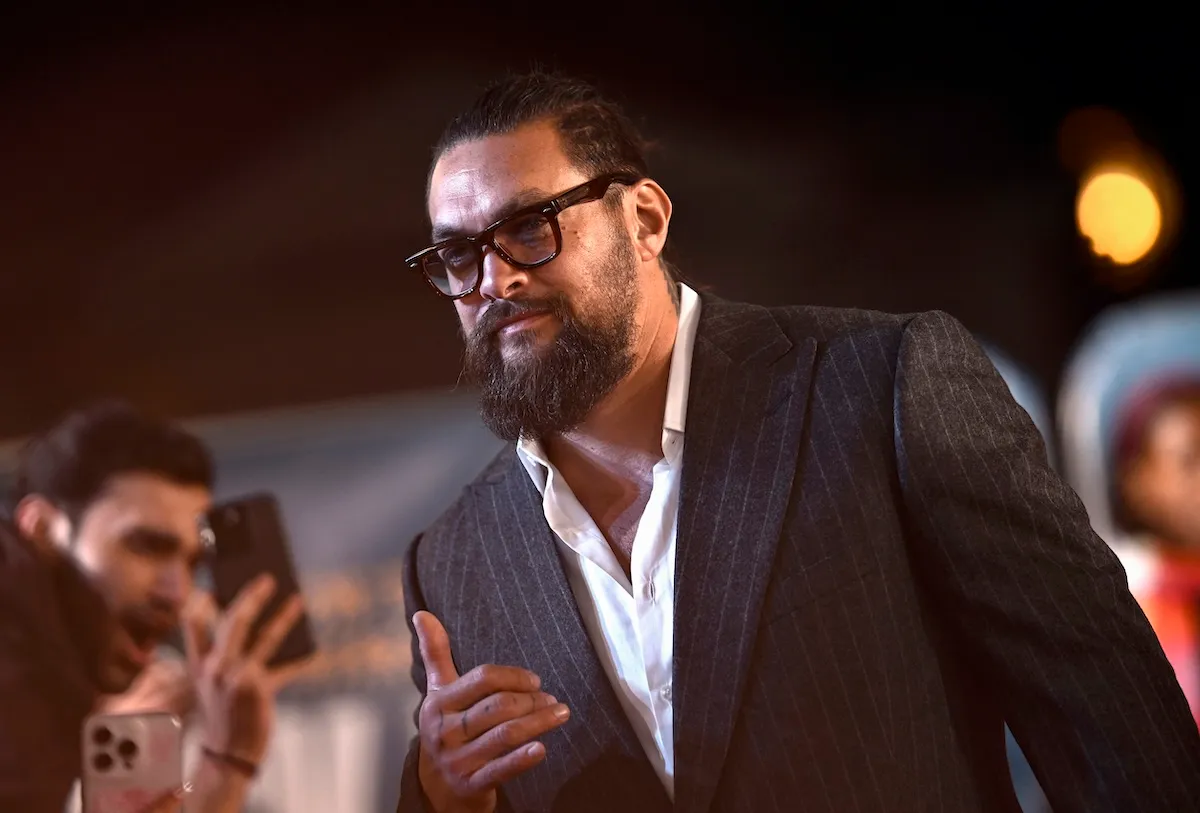May 14, 2021
Review: 'Halston' Cut to Fit Ryan Murphy's Style
Kilian Melloy READ TIME: 4 MIN.
The Ryan Murphy-produced (and co-written) five-episode miniseries "Halston" is as recognizably Murphy in style and gloss as Halston's own work reflected the famed designer - and that's just fine.
As with "Hollywood" and "Feud: Bette and Joan," Murphy takes historical figures and tells his own story. The miniseries doesn't depart into fantasy, as "Hollywood" did, but the specific elements about Halston's story that are highlighted - and how - feel very much cast in the same mold as those other shows.
The series, based on Steven Gaines' book "Simply Halston," re-creates several periods in American history - from the designer's initial breakthrough in the 1960s (he started as a milliner and created Jackie O's iconic pillbox hat) to the bold risks he took, and the setbacks he endured, throughout the '70s, and his eventual domination, by the '80s, of the fashion world. Say what you like about the pacing, which can be uneven; the series is a nostalgic dreamland, from the costumes to the sets and the overall production design.
The pattern of the story feels familiar, a tale of a lone (and lonely) visionary setting out to (literally) make a name for himself (he was born Roy Halston Frowick, but became world famous under his one-word moniker). As in all such tales, the titular genius persists, despite everyone else's doubts. When times grow desperate (a clothing line that flops), he somehow prevails (by, for instance, creating a new synthetic material that makes his subsequent designs sell like crazy).
That rarefied talent is balanced out by equally profound personal emptiness. Love and sex are risky, and not just because we're in pre-AIDS days and hurtling toward the epidemic at full velocity; Halston, having endured the emotional wounds of an abusive father, seeks love and approval, and above all else safety, but he can't bring himself to trust anyone he's actually dating. (Of the first serious love interest we meet, Ed - played by Sullivan Jones - we see so little that it's a shock to realize later on that Ed has become part of Halston's operation.)
Instead, Halston finds affection and support from his glamorous female friends (Liza Minnelli, played by Krysta Rodriguez, for instance), or from his steady - if anxiously unimaginative - business partners... at least those who, like high-rolling corporate executive David Mahoney (Bill Pullman), have enough faith in Halston to give him the money and creative latitude he needs.
Surrounding Halston are a bevy of other rich, strong characters, some of them presented fairly two-dimensionally and yet with such narrative assertion you don't always notice how shallow the depictions are. Italian model Elsa Peretti - who became an influential jewelry designer for Tiffany - is played by Rebecca Dayan, and though it might have been nice to see more of her own story (as opposed to the way she's made into a convenience to propel the plot and, at certain points, into a woman pining for a man she can never have), Daan brings fire to the role. When she's given the chance, she makes that fire burn hot. Illustrator and designer Joe Eula (David Pittu) is a constant and loyal presence, and the implication is that he's Halston's equal in ability, if not in verve. (Not so for another designer, Joel Schumacher, who is played by Rory Culkin. The character is given such a slight and uninteresting arc that as soon as he disappears from the screen he evaporates from memory, too.)
But these others are mere window dressing for the main character. Aside from Minnelli, the only one who makes half the impression Halston does is Victor (Gian Franco Rodriguez), a hustler who more or less wills himself into the position of being Halston's de facto life partner - a volatile relationship that combusts in a series of blowups, fall aparts, and acrimonious actions, most of them initiated by the temperamental Victor himself.
There's never any question that the story's anchor and power source is Halston himself. The title character is played by Ewan McGregor, and although some straight actors have taken heat recently for playing gay roles it's hard to imagine who might have done it better, especially with Murphy serving as co-creator and co-writer.
McGregor fits the material well, bringing layers of self-assurance, bravado, insecurity, and creative drive to the part, which is written as a kind of Americanized Greek tragedy. As brilliant as he is, Halston's flaws guarantee his eventual downfall. The story may be drawn from real life, but it has exactly the sort of mythic sheen and diagrammatic trajectory that makes it a natural fit for Murphy's sensibilities, and McGregor fits in well for the same reasons: He looks right, he sounds right, he moves right, and he wears the right wardrobe in the right way. He's the exact blend of panache and technique that the role calls for. (Besides which, it's hard to imagine anyone else as willing - here or in earlier roles - as McGregor to give the kind of all-out performance that invests the show's moments of absolute depravity with humor, and even pathos.)
The series, to its credit, spends more time tracing Halston's ascendancy than dwelling on his decline, but we see enough of Halston as a cocaine-addled wreck, his haughty demeanor slipping from supreme self-assurance to delusional ranting, to understand how he's wasted his talents - and also, to see what sort of vindication a final triumph becomes.
If Ryan Murphy is your brand of televisual candy, you'll binge this series.
"Halston" streams on Netflix starting May 14.
Kilian Melloy serves as EDGE Media Network's Associate Arts Editor and Staff Contributor. His professional memberships include the National Lesbian & Gay Journalists Association, the Boston Online Film Critics Association, The Gay and Lesbian Entertainment Critics Association, and the Boston Theater Critics Association's Elliot Norton Awards Committee.


